Named Lectures
- Chou Wen-Chung Distinguished Lecture on Chinese Culture
- Robert F. Ellsworth Memorial Lecture
- So Kwan Lok Distinguished Lecture on China
- Susan Shirk Lecture on U.S.-China Relations
The Robert F. Ellsworth Memorial Lecture is named after Ambassador Robert "Bob" Ellsworth (1926-2011), a highly respected public servant, a patriot and a national treasure. He had a diverse and illustrious career as a lawyer, politician, statesman, diplomat, strategist and investor. He was also a scholar who fought for the advancement of American leadership, security and principles.
Three Futures: Mapping the U.S.-China Relationship
Nov. 20, 2025 | Video
The future of U.S.-China relations is at a pivotal moment. In this year’s Ellsworth Lecture, Sarah Beran examined three possible paths forward for the two countries: a grand bargain that reshapes trade and security, continued strategic competition across critical and emerging technologies, or a rapid deterioration that would affect markets, supply chains and people-to-people ties. Each scenario carries far-reaching implications for business, education, regional and global trade flows, as well as for regional peace and stability. Beran highlighted the risks, opportunities and choices that will shape the next chapter of this critical bilateral relationship.
Since 2013, this series has become an important forum in San Diego for discussing affairs in the Asia Pacific region, drawing audiences from the academy and beyond. Delivered by seasoned statesmen and experts, these remarks and themes are still relevant to the dialogue surrounding U.S.-China relations today.
How the West Should Meet the China Challenge
March 16, 2023 | Video
Senior Fellow at Yale’s Paul Tsai China Center and former acting Assistant Secretary of State Susan Thornton tackled the question of what we should do to manage the transition to a post-Cold War order with China. Is it too late for a good outcome?
Eighth annual Robert F. Ellsworth Memorial Lecture
Nov. 4, 2019
Trade tensions and the deeper conflicts on technology, economy and geopolitics can lead to the possibility of China and America decoupling — creating two distinct, rival economic, technological and political systems with their own spheres of influences. In the Eighth Robert F. Ellsworth Memorial Lecture, former Prime Minister of Australia Kevin Rudd explained the arguments by American and Chinese hawks in this current dynamic and where they may take U.S.-China relations.
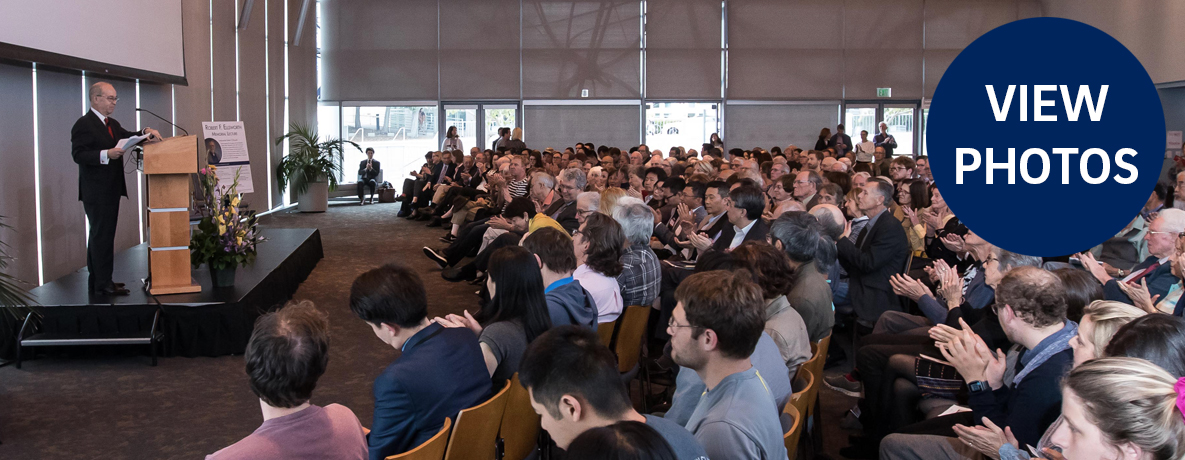
Seventh annual Robert F. Ellsworth Memorial Lecture
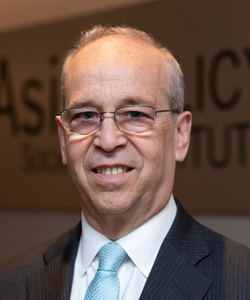
Speaker: Daniel Russel is the Vice President for International Security and Diplomacy at the Asia Society Policy Institute (ASPI). A career member of the Senior Foreign Service at the U.S. Department of State, he most recently served as the Assistant Secretary of State for East Asian and Pacific Affairs and as the White House as Special Assistant to the President and National Security Council (NSC) Senior Director for Asian Affairs. During his tenure there, he helped formulate President Obama’s strategic rebalance to the Asia Pacific region, including efforts to strengthen alliances, deepen U.S. engagement with multilateral organizations, and expand cooperation with emerging powers in the region.
Date: June 3, 2019
Location: The Great Hall, International House, UC San Diego
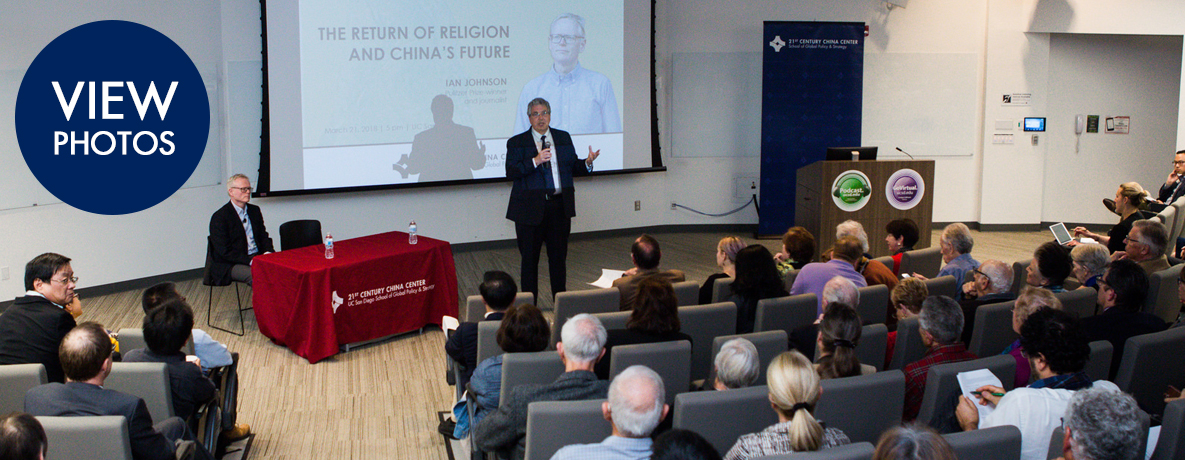
Sixth annual Robert F. Ellsworth Memorial Lecture
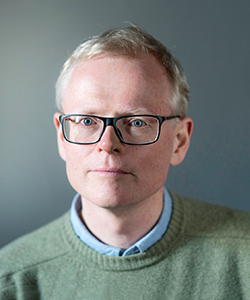
Speaker: Ian Johnson is a Pulitzer Prize-winner, and has written for the Wall Street Journal, The New York Review of Books, and The New York Times. His latest book, “The Souls of China: The Return of Religion After Mao,” explores the explosion of faith and what it means to be Chinese and how to live an ethical life in a country that is searching for new guideposts.
Date: March 21, 2018
Location: Robinson Auditorium, UC San Diego School of Global Policy and Strategy
Following a century of violent anti-religious campaigns, China is now filled with new temples, churches
Ian Johnson chronicles the rise of religion in China
March 27, 2018 | By Rachel Hommel | GPS News
GPS’s 21st Century China Center welcomed Pulitzer Prize-winning author Ian Johnson for its sixth annual Robert F. Ellsworth Memorial Lecture
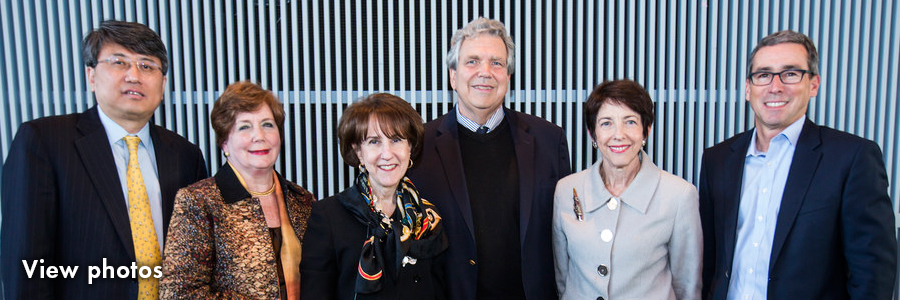
Fifth annual Robert F. Ellsworth Memorial Lecture
Speaker: Ambassador Charlene Barshefsky, Senior International Partner, WilmerHale
Date: March 7, 2017
Time: 4:30-6 p.m.
Location: The Great Hall, UC San Diego
In the Fifth Annual Robert F. Ellsworth Memorial Lecture, Ambassador Charlene Barshefsky addressed China’s growing protectionism and how the U.S. is responding.
China’s historic reform and opening has been the global economic story of our lifetimes, catapulting China’s economy, fueling global growth and opening vast opportunity to foreign enterprises. But in recent years, China’s economy has slowed markedly due to serious structural and social impediments, necessitating a shift in its growth model. Rather than embark upon further reform and opening as a means of recharging its economy, China has instead implemented a series of discriminatory, zero-sum policies that put foreign companies at a sharp competitive disadvantage. This approach is increasingly generating tensions with China’s trading partners – raising the question of how the U.S. and the international business community should respond.
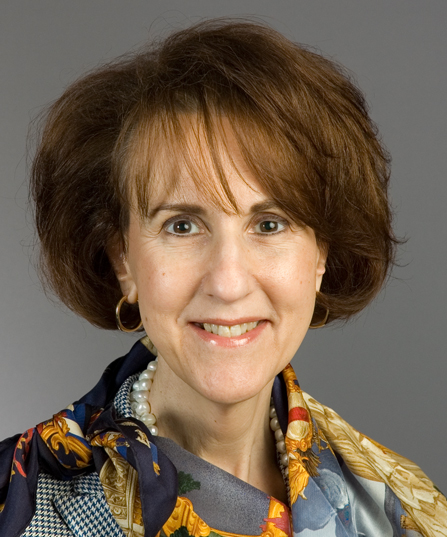
Ambassador Charlene Barshefsky is a senior international partner at WilmerHale and is one of the most influential lawyers in the U.S. She advises multinationals and private equity firms on their global market access, investment and acquisition strategies, is a member of the Council on Foreign Relations, and served in President Bill Clinton’s Cabinet as the U.S. Trade Representative, chief trade policymaker and trade negotiator. Among the agreements negotiated by her were China’s historic World Trade Organization agreement, and landmark global agreements in financial services, telecommunications, technology products and cyberspace.
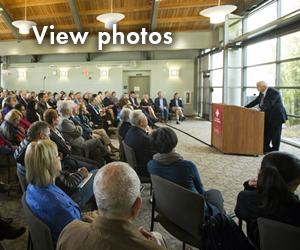 Fourth annual Robert F. Ellsworth Memorial Lecture
Fourth annual Robert F. Ellsworth Memorial Lecture
Speaker: Ambassador J. Stapleton (Stape) Roy, Distinguished Scholar andFounding Director Emeritus, Kissinger Institute on China and the United States
Date: March 28, 2016
Time: 5:30 – 7 p.m.
Location: Atkinson Pavilion, UC San Diego Faculty Club
The fourth annual Robert F. Ellsworth Memorial Lecture featured a discussion of “The Changing Geopolitics of East Asia” with Ambassador J. Stapleton (Stape) Roy, Distinguished Scholar and Founding Director Emeritus, Kissinger Institute on China and the United States.
Stapleton Roy’s ambassadorial assignments included Singapore, China and Indonesia. In this talk, he discussed the implications for the U.S. of the gradual erosion in its air and sea dominance in the Western Pacific caused by China's rapid military modernization. He also examined the factors that limit China's ability to dominate the region, including the difficulties China's leaders encounter in seeking to preserve the essentials of an authoritarian system in a country that is too open to the outside world, both politically and economically, to make this feasible over time.
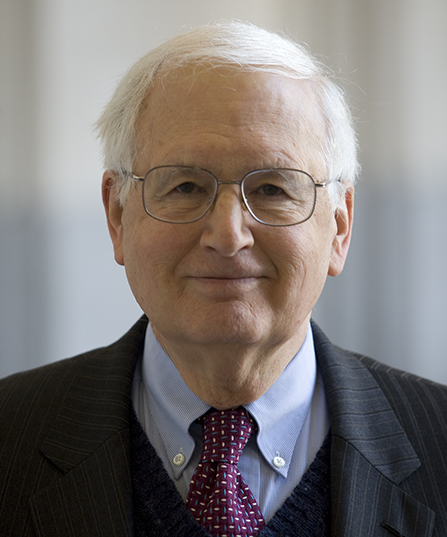 Speaker Bio
Speaker BioAmbassador J. Stapleton (Stape) Roy is a distinguished scholar and founding director emeritus of the Kissinger Institute on China and the United States at the Woodrow Wilson International Center for Scholars in Washington, DC. Stape Roy was born in China and spent much of his youth there during the upheavals of World War II and the communist revolution, where he watched the battle for Shanghai from the roof of the Shanghai American School. He joined the U.S. Foreign Service immediately after graduating from Princeton in 1956, retiring 45 years later with the rank of Career Ambassador, the highest in the service. Read his full bio online.
Text from the lecture (PDF)
Third annual Robert F. Ellsworth Memorial Lecture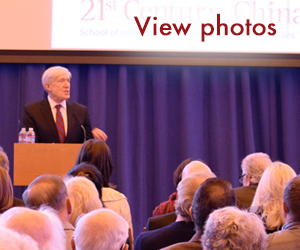
Speaker: Robert D. Hormats, vice chair of Kissinger Associates Inc. and former under secretary of state for Economic, Energy and Environmen tal Affairs
Date: March 2, 2015
Time: 5:30 - 7 p.m.
Location: The Great Hall, UC San Diego
The third annual Robert F. Ellsworth Memorial Lecture featured a discussion of United States-China relations with Robert D. Hormats, currently the vice chair of Kissinger Associates Inc. and former under secretary of state for Economic, Energy and Environmental Affairs.
Mr. Hormats has worked extensively in Western Europe, China, India, Russia, the Middle East and South East Asia. His areas of expertise and experience include international trade and investment, intellectual property, foreign investment in the U .S., protection of trade secrets and global energy issues.
In his lecture, he discussed China's foreign policy under Xi Jinping, as well as the challenges and opportunities faced by the U.S. as China's influence abroad continues to expand.
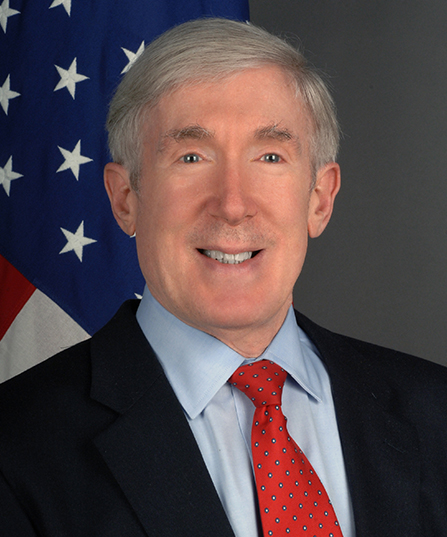 Speaker Bio
Speaker BioRobert Hormats is vice chair of Kissinger Associates Inc., a New York-based strategic international consulting firm that assesses and navigates emerging market geopolitical and macroeconomic risk. Previously, he served as under secretary of state for Economic, Energy and Environmental Affairs from September 2009 to July 2013.
This event was cosponsored by the Fudan-UC Center on Contemporary China with the International Affairs Group, UC San Diego.
Second annual Robert F. Ellsworth Memorial Lecture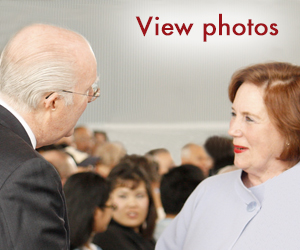
Speaker: Ambassador Clark T. Randt, Jr., former U.S. Ambassador to the People's Republic of China
Date: May 6, 2014
Time: 5 - 6:30 p.m.
Location: The Great Hall, UC San Diego
China and its new leadership are at an important domestic policy crossroads just as the risk profile of their neighborhood in Northeast Asia is spiking. Ambassador Clark T. Randt, Jr. discussed these challenges and risks, and their importance for United States-China relations.
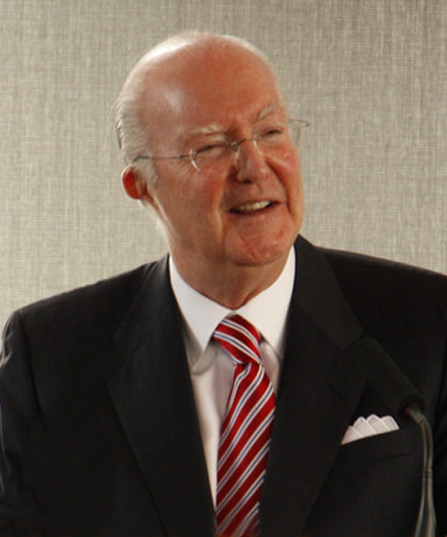 Speaker Bio
Speaker BioAmbassador Randt is the longest-serving United States Ambassador to the People’s Republic of China. He is a diplomat, lawyer and businessperson with more than 30 years of direct experience in Asia. Randt was nominated by President George W. Bush, confirmed by the Senate and sworn into office as ambassador in July 2001. He served in the post until January 2009.
Randt graduated from Yale University with a bachelor’s degree in 1968 and received his law degree from the University of Michigan in 1975. He also attended Harvard Law School where he was awarded the East Asia Legal Studies Traveling Fellowship to China. Randt serves on the boards of UPS and Qualcomm, and is a member of the Council on Foreign Relations.
The Inaugural Robert F. Ellsworth Memorial Lecture(PDF)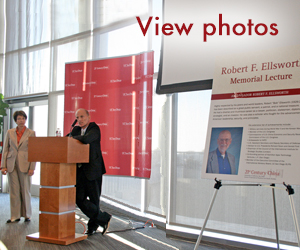
Speaker: Dr. Jeffrey A. Bader, Senior Fellow at Brookings Institution
Date: May 12, 2013
Time: 5:15 - 7 p.m.
Location: The Great Hall, UC San Diego
Dr. Bader provided an overview of the Obama administration’s efforts to develop stable relations with China while improving relationships with key partners who are worried about Beijing’s new assertiveness. Bader discussed what steps were taken and interpreted what it meant—first during the Obama campaign, and then for the administration. He provided an illuminating backstage view of the formulation and execution of American foreign policy as well as a candid assessment of both.
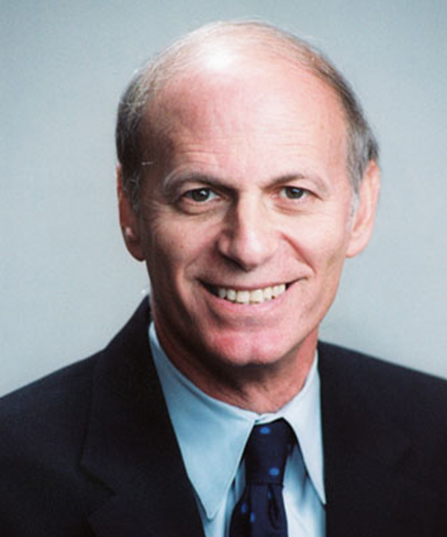
Jeffrey Bader is a senior fellow in the John L. Thornton China Center at the Brookings Institution in Washington, D.C. From 2009 until 2011, Bader was special assistant to the president of the United States for national security affairs at the National Security Council. In that capacity, he was the principal advisor to President Obama on Asia. Bader served from 2005 to 2009 as the director of the China Initiative and subsequently as the first director of the John L. Thornton China Center. His latest book, "Obama and China’s Rise: An Insider’s Account of America’s Asia Strategy," was published by Brookings Institution Press in March 2012.